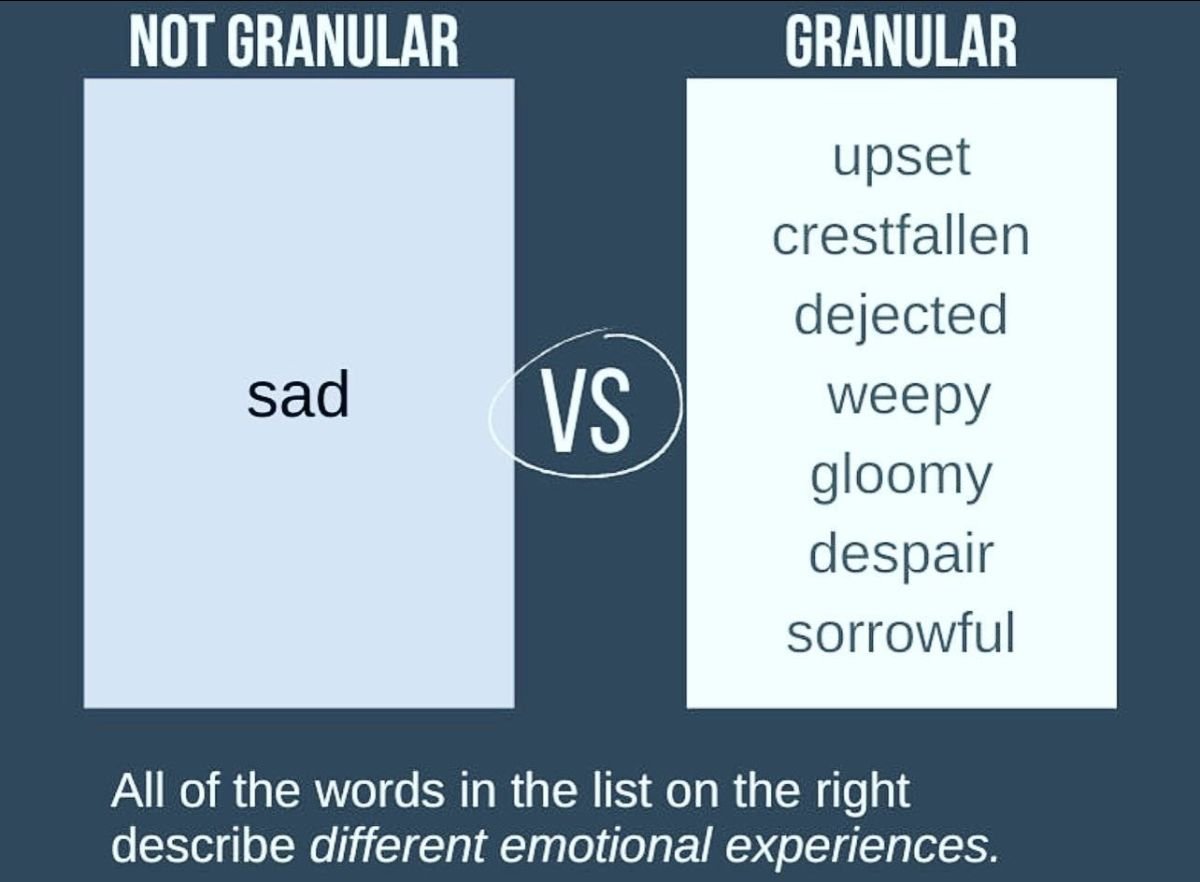Emotional Granularity
Having more words to describe your feelings
gives you many more options
to understand what you're feeling.


Children experience complex emotions just like adults. They get frustrated, excited, anxious, sad, jealous, scared, angry, and even embarrassed. Although young children share these same emotions with adults, they often do not share the vocabulary to fully express how they feel. When a child does not recognize their emotions or have the words to express how they are feeling, they may try to communicate using body language, facial expressions, or even physical behaviors. However, when we teach children to recognize their emotions, they are empowered to explore the skills needed to cope with them. We can do this by supporting their emotional granularity.
What is Emotional Granularity?
Emotional Granularity is the ability to have a wide range of precise, specific words to describe how you're feeling. Providing a child with more words to describe their feelings gives them more opportunities to understand and express their emotions. The more emotional words that a child has, the more precisely they can name and understand what they are feeling. Emotions can be viewed very similarly to the color wheel! While the primary emotion may be sadness, when we take a more in-depth look, we see that being sad can mean being disappointed, lonely, guilty, or much more. Recognizing these underlying emotions is the first step to coping with them.
How can we teach Emotional Granularity?
When a child claims that they feel angry because their tower fell over, we can guide them to diving a little bit deeper by asking some questions:
Why do you think you feel angry?
Are you frustrated because your tower fell?
Are you disappointed because you worked so hard on it?
Providing this guidance helps children analyze what they are feeling and teaches them to understand their emotions. When a child understands their feelings, they actually have more awareness and more control.
Why is Emotional Granularity important?
Emotional granularity helps children:
Feel in control of their emotions
Understand the reasons behind their feelings
Prevent negative emotions from leading to negative thoughts
Form better relationships
Normalize their feelings
Understanding and recognizing emotions helps children express themselves in a more meaningful way than that physical or helpless response. Also, the more your child understands themselves, the more they can help you understand.

